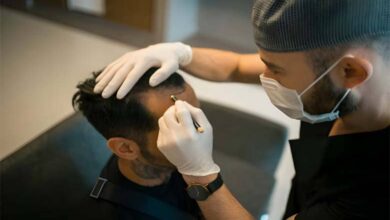How Implantable Medical Devices Can Treat Your Arrhythmia

Arrhythmia is a condition characterized by irregular heart rhythms. Early on, a case of arrhythmia may produce symptoms such as increased sweating, shortness of breath, and chest pain. It may also present no symptoms. As your arrhythmia worsens, it can eventually lead to heart failure.
Seeking effective treatment for your case of arrhythmia should be your priority. According to the National Heart, Lung, and Blood Institute, prescription medication and specific procedures can be used to treat arrhythmia. Your doctor may also use implantable medical devices to address your heart condition.
Find out why your doctor may recommend using an implantable medical device for long-term arrhythmia treatment by continuing below.
Why Will a Doctor Recommend Implantable Medical Devices for Your Arrhythmia?
As noted in the introduction, arrhythmia treatments may come in the form of medications and surgical procedures. So, why would your doctor recommend using an implantable medical device when other options are available?
The first reason may be because your condition is not responding to medication. Your case of arrhythmia may no longer respond to medication if it has progressed past a certain point. Medication may also not produce the desired results for specific types of arrhythmia.
Medical professionals such as Dr. Ian Weisberg lean on implantable medical devices if a particular patient’s case of arrhythmia is related to the heart no longer functioning as expected. Your doctor may also decide to use an implantable medical device for your treatment if you are at risk for sudden cardiac death.
Which Implantable Medical Devices Are Used to Treat Arrhythmia?
There are two implantable medical devices commonly used to correct irregular heart rhythms. According to the American Heart Association, those devices are pacemakers and implantable cardioverter defibrillators.
First, your doctor may recommend the implantation of a pacemaker if your heart cannot establish a proper rhythm. The pacemaker sets your heart on the right rhythm and sustains that. Pacemakers can also be used to mitigate the lingering effects of a recent heart attack. It specifically helps return your heart to a normal working pace if the health scare you suffered slowed it down.
Implantable cardioverter defibrillators are similar to pacemakers in the sense that their primary job involves regulating the heart’s rhythm. However, these implantable devices are different because they focus more on releasing electrical shocks meant to regulate your heartbeat. These devices are also more sophisticated because they can sense if your heart is out of rhythm.
A doctor may also use an implantable cardioverter defibrillator if they have determined that their patient is at risk for sudden cardiac death. This implantable device is designed to prevent that tragic occurrence. It could mean the difference between life and death for certain patients.
Discuss your implantable medical device options with your doctor to identify the right solution for your condition. Implantable medical devices can correct arrhythmia and preserve the quality of life for affected individuals. Don’t shy away from using those devices if your doctor recommends them. Get them as soon as possible to preserve your heart health.




